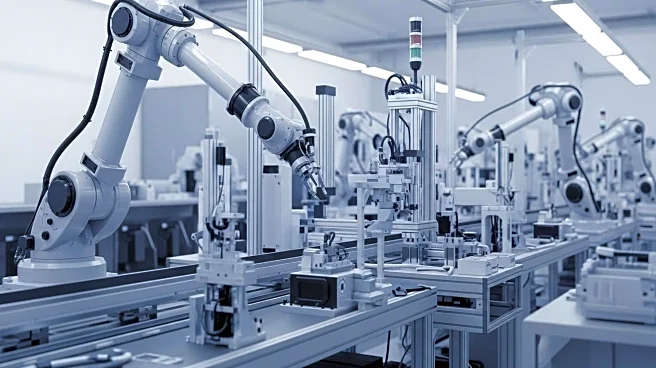What is the story about?
What's Happening?
Central Community College has received a nearly $1 million grant from the National Science Foundation to enhance Nebraska's workforce in mechatronics. The grant will be used to teach industrial automation to working adults and students in adult education programs through online lessons and portable training kits. The program aims to equip learners with skills in mechanical, electrical, and computer systems, which are highly sought after by factories and other workplaces. The initiative, led by Nebraska business leaders and college instructors, plans to enroll 180 students over three years.
Why It's Important?
The grant is significant for Nebraska's workforce development, particularly in the field of mechatronics, which combines mechanical, electrical, and computer systems. With nearly 3,000 job openings projected in mechatronics-related fields over the next decade, the program addresses a critical need for skilled workers. The average wage for these positions is over $37 per hour, indicating strong economic benefits for participants. By providing accredited technical training that fits into the lives of non-traditional learners, the program supports workforce diversification and economic growth.
What's Next?
The program will continue to enroll students and provide training in electronics, pneumatics, hydraulics, motors, and transformers at Central Community College's Columbus campus and Kearney learning center. The college plans to share insights gained from the initiative with other colleges and companies to further develop the workforce. This collaboration aims to enhance the skills of Nebraska's workforce and support local businesses by providing trained professionals in mechatronics.
Beyond the Headlines
The initiative highlights the importance of accessible education and training for non-traditional learners, offering them opportunities to gain valuable skills without disrupting their lives. By aligning educational programs with industry needs, the college supports local economic development and strengthens partnerships with business leaders. This approach not only benefits individual learners but also contributes to the broader goal of workforce readiness and economic resilience.
















